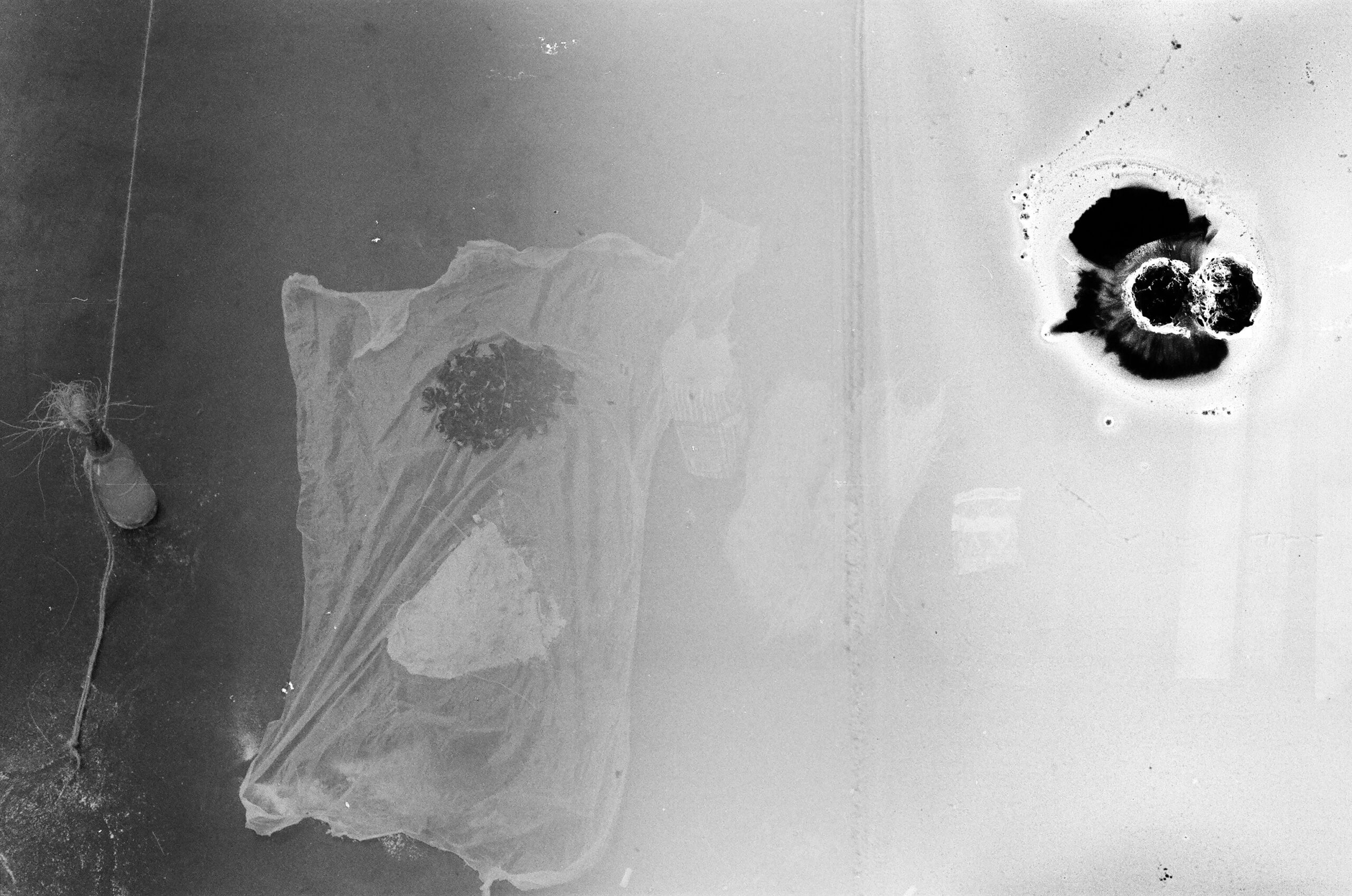James Jordan Johnson: Negotiations of Obeah Material Memory; The Denigration of Material Belief Systems
Format: Performance (pictures), chalk, moringa, white husk, pickaxe, string, bottle, water, flour, sorrel, tree bark & wood
Duration: 120 min
Produced by Toynbee Studio, Arts Admin
‘Negotiations of Obeah Material Memory: The Denigration of Material Belief Systems’ is a research project and series of photographic performances by James Jordan Johnson during his weeklong residency at Toynbee Studio. The project centers on Jamaica’s passing and consecration of laws, sanctions and prison recordings relating to Obeah practitioners throughout the 1800s and early 1900s. Obeah, deriving from the Ashanti word obay’fo, Ghana, is a spiritual practice utilised for purposes of enlightenment, dream demystification and healing bodily ailments. It is through accounts of Obeah history during colonialism that multiple records recall its use during slave rebellions in the Caribbean. By carrying out this research, the artist aims to explore the role of ritual and materiality throughout and after Jamaica’s formal colonial period. This project will act as a contribution to the canon of Afro-Caribbean art, specifically performance art, and Afro-Caribbean people in order to engage with the materiality of ritual practices in the making of Jamaica’s national and cultural identity.
‘Negotiations of Obeah Material Memory: The Denigration of Material Belief Systems’ is a research project and series of photographic performances by James Jordan Johnson on Jamaica’s passing and consecration of laws, sanctions and prison recordings relating to Obeah practitioners throughout the 1800s and early 1900s.
James Jordan Johnson is an artist and researcher (born 1997, London) working in the medium of performance. As a performance artist belonging to the Caribbean diaspora, his practice is framed by the transnational contours and possibilities of black performance traditions. Through performance and sculpture he explores the set of historical, colonial, and legislative conditions that produce Afro-Caribbean memory.
Website: jamesjordanjohnson.com






